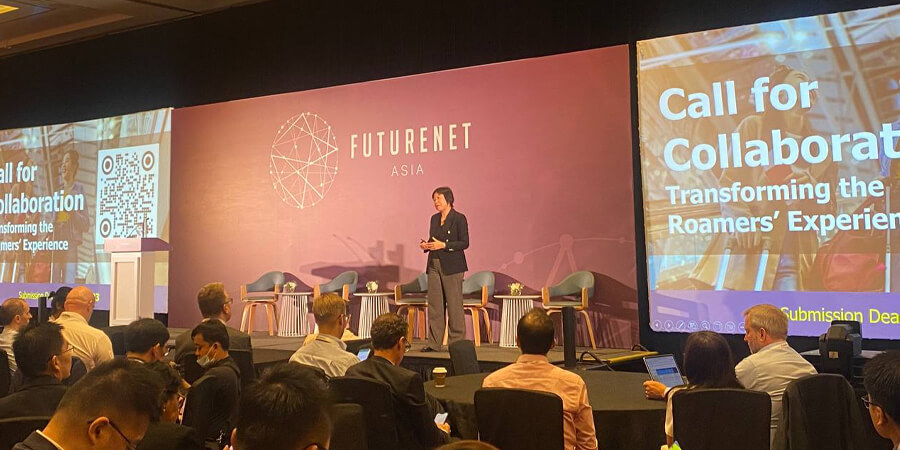The finale of FutureNet 2023 marked the conclusion of a two-day event filled with profound insights and discussions. The second day got off to an auspicious start, as Giles Cummings, founder and CEO of FutureNet World, and Andrew Collinson from Connective Insight took the stage for the opening remarks.
The theme of the day revolved around "The Journey to Cloud Native," and the discussions were geared towards the transition to fully virtualized cloud networks, network monetization, and operational models.
Shanthi Ravindran, principal analyst at Appledore Research, began the day with a presentation on "Analysing Global and Regional Trends on Network Automation Software Investment." She examined the substantial global expenditure of US$6.21 billion on Network Automation Software (NAS) in 2022 and further shed light on where CSPs are directing their investments and how these trends will shape the future of telco operations.
The day's CxO Keynote Panel featured industry heavyweights discussing the journey to cloud-native networks and network monetization. Speakers, including Sundi Balu from Telstra International and Enterprise; Faisal Parvez from BT Group; Jan Morgenthal of M1; Andrey Kuzin from Smart Axiata; and Vivek Chadha from Rakuten Symphony, addressed the key applications enabled by virtualized cloud networks and the challenges in their implementation.
A highlight of the day was the Keynote Fireside Chat on "The Cloud Native Telco and the Shift to AIOps: Next Generation Operating Models." Lian Jye Su from Omdia and Sharad Sriwastawa from Rakuten Mobile explored the complexities and challenges brought about by 5G and Edge technologies and discussed reimagining operational models for new services.
Jan Morgenthal, chief digital officer at M1, followed with a keynote presentation on "The Public Cloud and the Journey to Cloud Native." He touched on the cultural shift required, vendor relations, data security and the role of hyperscalers in this journey.
According to Morgenthal, “it's crucial to understand the characteristics of your workload and traffic profiles. This knowledge is pivotal when determining the feasibility of shifting workloads to the cloud.
“When it comes to the control plane, some telcos may find moving to the cloud financially viable when comparing costs.” He also believes that “over time and with innovative solutions, microscalers will introduce more economically sustainable models.”
Morgenthal also underscored the importance of embracing the cloud-native paradigm as an effective bridge to harness the advantages of public cloud infrastructure. He suggested the integration of on-premises hybrid infrastructure with the cloud for testing, acknowledging that “certain workloads may inherently benefit from a public cloud infrastructure from the outset.”
Moving into the afternoon, the discussions delved into open networking, programmability and disaggregation in a panel moderated by Carlos Oliver from Kearney. Industry leaders such as Irshad Deen from Sri Lanka Telecom, Izni Rawi from Telekom Malaysia and Gil Hellman from Wind River shared their thoughts on the future of telcos.
Value Creation, Cooperation and Innovation took center stage in a presentation by Steven Zheng, chief marketing officer of Huawei Technologies.
The day continued with panels discussing the realization of the promise of 5G, the journey towards zero-touch automation, autonomous operations and agile orchestration for zero-touch networks. These panels featured experts from various telecom companies, offering valuable insights into the challenges and opportunities in the industry.
The event's closing keynote fireside chat, led by Andrew Collinson and Ahmed Saady Yaamin from Axiata Group, focused on defining the role of AI and automation in running a network with disaggregated technology and how to accelerate network modernization programs.
FutureNet 2023 Day 2 concluded with a sense of accomplishment, having successfully brought together leading minds in the telecom industry to explore the path to a cloud-native future and the challenges and opportunities it presents.
As the curtains fell on the event, attendees departed with a wealth of knowledge and inspiration to navigate the ever-evolving landscape of telecommunications and to embrace the journey towards highly autonomous networks. FutureNet 2023 proved to be a significant platform for discussions that will continue to shape the future of the telco industry.





